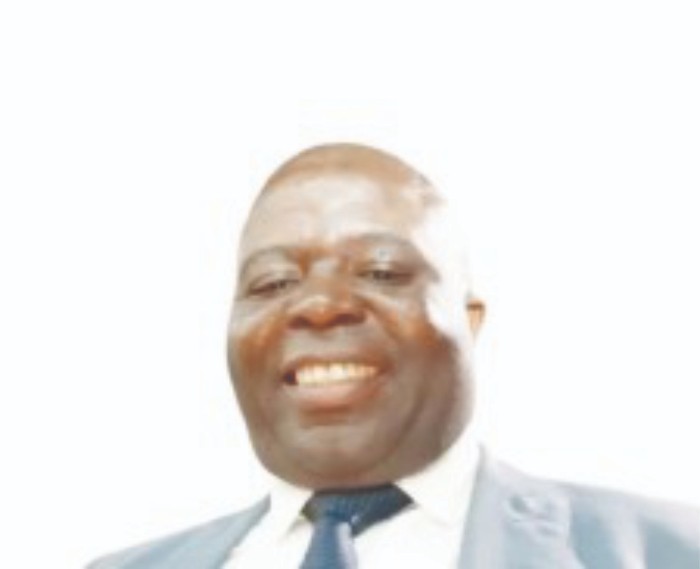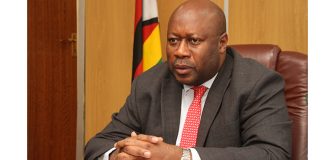Polad lays out electoral reform proposals
Share

The Political Actors Dialogue (POLAD) wants all election-related laws to be included in the Electoral Act to enhance and strengthen the country’s electoral processes.
Presently, political party financing, regulation of political rallies and other political meetings are preserved in separate statutes while access to the media by political actors during the election season is regulated outside the Electoral Act.
POLAD held extraordinary executive plenary meetings on electoral reforms between December last year and January this year and came up with a number of electoral reforms for adoption.
Yesterday, the group – comprising the bulk of political parties that contested the 2018 Presidential elections – released a communiqué dated January 14, 2022 recommending reforms to the electoral law. In the communiqué signed by all the political leaders, POLAD said access to electoral law by all political actors must be easy and the law itself must not be complicated.
“Ideally, all electoral laws must be found in one Code,” said POLAD.
“It is proposed that all election-related laws must be in the Electoral Act. Thus, the Political Parties (Finance) Act must be repealed and all its provisions transferred to the Election Act. The regulation of the political rallies and meetings during an election season must be in the Electoral Act, not in the MOPA (Maintenance of Peace and Order Act).
“Special access to the public media during election season must be provided for in the Electoral Act and not the Broadcasting Service Act.”
POLAD members also proposed that the State funding of parties must be widened to promote a multi-party democracy.
“It does not take into account all votes cast in a general election,” reads the communiqué. It has a very high minimum threshold of 5 percent of votes cast and it does not consider votes cast for the President and for local councillors. It is proposed that the Political Parties (Finance) Act be amended to take into account all three elections namely Presidential, parliamentary and local authorities for participating political parties.”
“The minimum threshold must be reduced to less than 5 percent.”
POLAD also wants the regulation of political campaign meetings to be kept to a bare minimum during the period from proclamation of elections up to polling day, following flexible arrangements.
They proposed that door-to-door campaigns should be allowed with police notified for record purposes only and the meetings should be of less than 50 people indoors and 100 people in open spaces.
POLAD also called for a legislated two-hour free slot during prime time viewing for every political party participating in the election and a minimum of five articles at least on pages with odd numbers.
It added that the Zimbabwe Media Commission should monitor the fair coverage of all political parties in the public media.
The Constitution now provides for a 30 percent female quota in respect of councillors for local authorities, but the Electoral Act has not yet made provisions for how the female quota would be filled.
In this regard, POLAD proposed that this be done immediately and that the formula being used for the female quota in Parliament be used subject to the party list of each contesting political party.
The list must be headed by a woman who is either 35 years of age or has a disability.
It was also proposed that the Zimbabwe Electoral Commission regulations be promulgated at least six months before the elections.
“Save in exceptional circumstances, any regulations that ZEC is mandated by law to promulgate to govern a general election must be promulgated at least six months before the election,” said Polad.
“For the avoidance of doubt, such regulations must include any amounts of money that candidates may be required to pay.”
On the proclamation of election date, POLAD proposed that this must be at least 90 days before polling day, hence they ask current timelines in the Electoral Act to be adjusted accordingly.
Turning to the voters roll, it was proposed that it should be closed 14 days after the date of proclamation while last minute registration of voters must be allowed up to 14 days after the proclamation and thereafter the voters roll must be closed, polished and published.
“Only voters whose names are on the voters’ roll must be allowed to vote. There must be no room for voting slips or supplementary voters roll.”
The voters’ roll must be published and made available at least seven days before the nomination court, said POLAD.
On the nomination of candidates, it was suggested that it must take place over a period of five days with the Nomination Court only sitting on the fifth day to announce the final list of successful candidates.
They view the current nomination system of nomination courts sitting for one day between 1000hrs and 1600hrs as colonial, unduly restrictive and undemocratic, arguing it disadvantages women and the disabled.
“It is proposed that nomination of candidates be opened over a five-day period, with each successful candidate being given a nomination certificate as soon as she/he satisfies the nomination requirements,” said POLAD.
“The nomination court will have a special sitting on the last day to announce the list of successful candidates.”
POLAD further proposed that ZEC be obliged by a specific provision of the Electoral Act to inform voters via both the print and electronic public media of the names of candidates.
The current law only obliges ZEC to gazette the names of candidates.
No voter consults the Government Gazette for names of candidates.
“Voters rely on the media for news about candidates,” said the political leaders.
“The Electoral Act must oblige ZEC to keep making public announcements of the names of candidates on a regular basis, in the manner that they appear on the ballot paper once every week for the last six weeks of the election season.”
They also want ballot papers to have a single vertical column of names of candidates in alphabetical order of surnames, whatever the length.
“Best practice, regarded as management bodies, must not have ballot paper. This must be fixed by law inserted in the Electoral Act prescribing that single continuous column of names of candidates surnames, whatever the length.”
They also sought to have voters with visual challenges, like all other voters, to be entitled to secrecy, hence the Act must be mandatory for ZEC to provide for Braille voting.
On assisted voting, POLAD suggested that all persons, who require assistance to vote, should be allowed to be assisted by a person of choice but must be required to sign a declaration for request for assistance.
“It must be a criminal offence to make a misrepresentation relating to illiteracy or any disability,” said POLAD adding that “no person shall be allowed to assist more than one voter”.
They also want election results to be announced within a maximum period of 96 hours.
Presently, the Electoral Act says the maximum period for announcement of final results is four days.
POLAD says four days was a long period which may lead to unnecessary anxiety and political tension.
“If it (ZEC) requires more time beyond 96 hours, it must apply to a judge of the Electoral Court.”
Finally, POLAD wants the media permitted to publish any election result already posted outside a polling station or ward centre or constituency centre.












